Many women suffer from scalp irritations here and there. However, there are some women who suffer from a scalp that itches like crazy! A lot of times, we first blame a new product that we just started using. But many times the itchy scalp is linked to something bigger. In this article, I will share with you 5 reasons why your scalp is itchy and irritating. If you’ve ever found yourself doing this because your scalp is so itchy, then you’re in the right place.
Here are some common issues or conditions that could be causing your itchy scalp:
1. Dandruff:
Have you ever combed your hair and looked at your shoulders to see small white flakes all over your clothes? Many of us have been there before. However, if this is a chronic issue for you then you may be suffering from dandruff. Dandruff is the most common reason for an itchy scalp or “scalp on fire” as I like to call it. Dandruff is a combination of redness, dryness and itchiness. According to the Mayo Clinic, dandruff may be caused by:
- irritated and oily skin
- not shampooing enough
- malassezia, which is a yeastlike fungus that feeds on oils on the scalp brought on by age, hormones or stress
- dry skin
- sensitivity to hair products (contact dermatitis)
- older age
How to Soothe the Itch:
Dandruff is a chronic condition that has no cure for it and it may flare up from time to time. However, you can treat it. The best recommendation is to speak to your dermatologist about which dandruff shampoo may work best for you. One of the good things about shampoos that can help with dandruff is they have active ingredients such as salicylic acid, pyrithione zinc, selenium sulfide, etc. to help keep the malassezia fungus at bay.
However, if you prefer to go the natural route then you can try some DIY remedies or use shampoos that contain tea tree, which is a natural ingredient that helps to sooth irritation. But do not apply tea tree directly to your scalp as it will cause severe irritation. One recommended treatment is to do a pre-shampoo treatment with Apple Cider Vinegar (mix ¼ cup of ACV + ¼ cup of water and let sit). Another great option is to take a raw Aloe Vera leaf that has been cut open and apply the gel to your scalp for 15 minutes prior to washing and conditioning you hair.
2. Scalp Psoriasis:
Psoriasis is a skin condition that happens when your immune system sends signals to your skin cells to grow too rapidly. As a result, patches of skin begin to pile up creating a fine scaling that looks like dandruff, or appears as thick, crusted plaques that cover the entire scalp. Scalp psoriasis can cause an itchy scalp that just won’t go away.
How to Soothe the Itch:
Some over-the-counter products may offer relief but the best course of treatment will come after being properly diagnosed from your doctor. So please consult a doctor first. If you want to take a first step to treat this condition you can look for over-the-counter shampoos that contain salicylic acid and/or tar.
- Salicylic acid helps to soften plaques and scales and removes those scales from the skin
- Tar (can be made from coal or wood) helps to slow the growth of skin cells and soothe inflammation, itching and scaling
Other solutions that may be offered include topical creams and tars. This condition can be difficult to treat, but with the help of your dermatologist you can find a regimen to keep this issue in check.
3. Folliculitis:
If you are experiencing an itchy scalp along with red, bumps that look like an acne breakout then you may have folliculitis. Folliculitis is a common skin condition where the hair follicles become inflamed. It can be caused by damage to your hair follicles which in turn leaves makes your follicles more prone to bacteria and fungi. Damage to your hair follicles can come from:
- product build up
- frequent and rough scratching and rubbing of your scalp
- wearing braids or other protective styles that pull and tug at your scalp
- frequent twisting and tugging on your scalp
- shaving your head
- frequently wearing hats
- frequently wearing wigs
- wearing sports helmets
In more serious cases, the bumps caused by folliculitis can be filled with pus. They may also be painful and itchy at the same time. There are two types of folliculitis: superficial and deep. The superficial folliculitis condition affects part of the hair follicle. The deep folliculitis condition affects the entire hair follicle and is usually more severe.
How to Soothe the Itch:
If your condition is widespread you should make an appointment with your doctor or dermatologist immediately. In serious cases you may need an antibiotic or antifungal medicine to control the condition.
For less severe cases you can try the following at home remedies:
- Warm Compress. Apply a warm compress to your scalp a few times a day to soothe the scalp and help drain pus.
- Medicated Shampoos, Use a medicated shampoo that has anti-fungal properties. For example, these may include ketoconazole, ciclopirox or shampoos infused with tea tree oils
- Cortisone Cream. Depending on your doctor’s recommendation, you could apply a cortisone cream. Apply it to the affected area which could help treat and relieve some of your symptoms.
- Wash More Often. Wash your combs, brushes and bed linens and tools or clothing that may have come into contact with your scalp.
4. Alopecia Areata:
Alopecia areata is a condition where the immune system attacks your hair follicles, resulting in round bald spots. When the condition becomes active, your scalp can itch, a lot. Patients with active alopecia areata often complain about tingling or burning scalp along with an itchy scalp.
How to Soothe the Itch:
Dermatologist can offer treatment options such as topical steroids or steroid injections directly to the scalp. With this scalp condition it’s best to seek treatment from your doctor as early as possible to prevent more hair loss. The most common form of alopecia areata treatment is the use of corticosteroids, powerful anti-inflammatory drugs that can suppress the immune system.
5. Dirty Scalp:
It may seem like common sense but a dirty scalp can make your scalp feel like it’s on fire! You may have heard people say that dirty hair grows faster. However, that is just a myth that has been circulating in the black community for years. When you allow dirt, oils and sweat to build up on your scalp it can be bad. For example, it can create a breeding ground for yeast and fungi. If you’re not washing your hair regularly and you are constantly wearing durags, hats, bonnets, scarves or even wigs then you could be blocking your pores and make your scalp sweat. The dirt and buildup from sweat can irritate your scalp and make it extremely itchy.
How to Stop the Itch:
Wash your hair, period. A healthy scalp is required for healthy hair growth so you should really be washing your hair every 1-2 weeks. If you like to wear protective styles such as braids, wigs, and weaves then yes, you still need to wash your hair/scalp. That is because it does not cleanse the dirt from your scalp or hair. Be sure to wash, condition, and rinse your hair thoroughly when you are washing with braids/twists and add a light, natural oil at the end to help seal in moisture such as the VoiceOfHair PureFix Elixir.
Latest posts by Brandelyn Green (see all)
- Everything You Need to Know About Moisturizing Oils Vs. Sealing Oils - February 15, 2024
- 4 Simple Tips To Slay Your Edges that You’ll Love - February 15, 2024
- 5 Benefits of Peppermint Oil That Will Make Your Hair Feel Like New - February 12, 2024
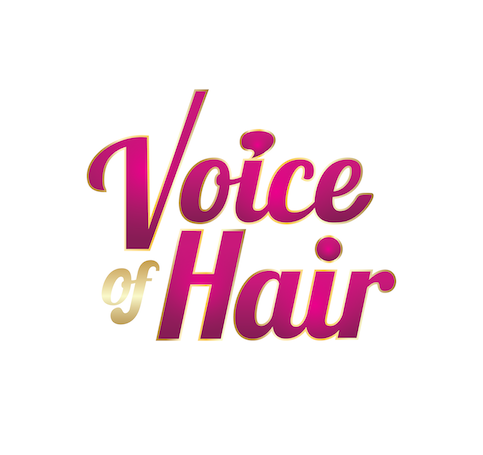
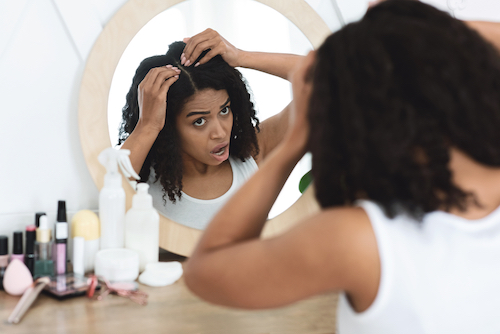

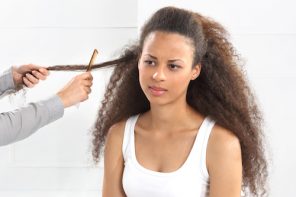
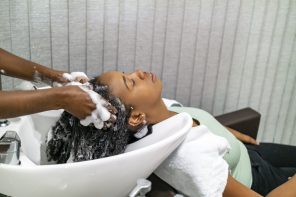


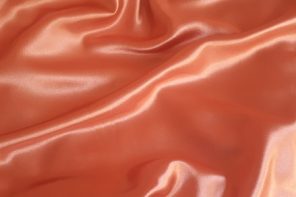
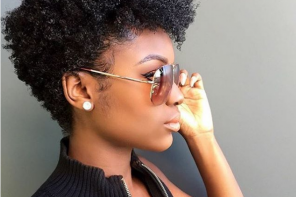

What is the best natural shampoo to use on black women hair. I also get my hair press…what is the best oil or product to use when pressing my hair??? How hot should I have my pressing comb?!?
Hi Billie,
You should try our our line for your hair! https://voiceofhaircare.com/collections/our-products
It would be perfect for all of your needs!
Ms Green, Thank you for your history on itching and burning scalp but I have a problem with my hair, the end of my hair always tangles up no matter how I comb it out it still tangles at the end. I’ve cut my hair off the the end that’s no good it still tangles I brush it well and it still tangles. My hair is natural I just don’t understand why, I’ve tried a couple of different conditioners I’m just lost. HELP, HELP, HELP